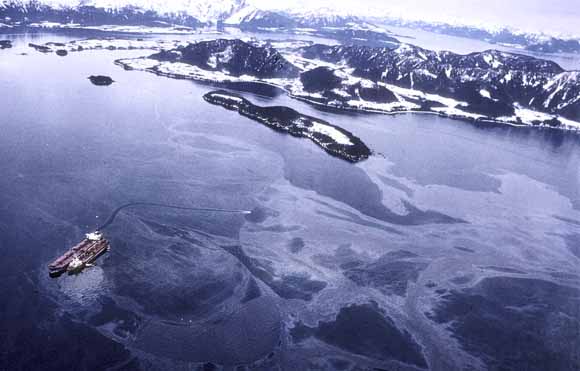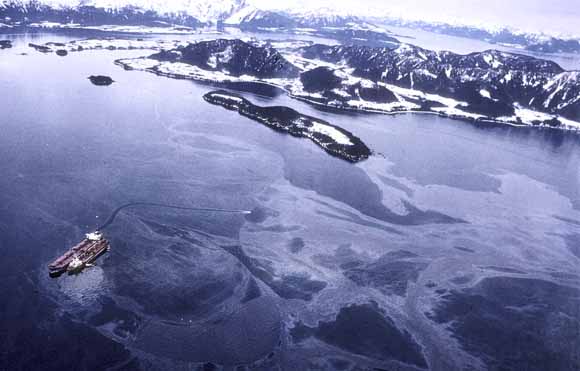
The Exxon Valdez spill in Prince William Sound, March 1989.
Tuesday marks 20 years since the Exxon Valdez dumped nearly 11 million of gallons of crude oil into Alaskan waters, resulting in the most severe impacts on the environment of any spill anywhere. I was there and will attest to the graveness of the situation then, and now — my memories of that day are graphic. I boarded the tanker a few hours after the spill began to enforce clean-up standards. The pungent, toxic smell of the oil is still fresh in my memory today.
The spill eventually devastated hundreds of miles of coastline, damaged ocean ecosystems and community resources, and distressed the local economy by closing commercial fisheries and hampering tourism. Though 20 years have passed, 16,000 gallons of oil remain in the water and three animal species still have not recovered.
As Congress and the White House continue a national debate on offshore oil drilling, we still need to learn our lessons from the largest oil spill in U.S. waters. According to a report by the U.S. Coast Guard, six major and five medium spills totaling more than 9 million gallons resulted from hurricanes Katrina and Rita. Many of the world’s 10,000 oil tankers still do not have safer double hulls to help prevent catastrophic spills.
We must take three steps to protect our ocean:
First, we must use faster, cheaper, safer energy options to solve the oil crisis, cut individual energy bills, and quickly reduce America’s dependence on fossil fuels.
Second, we need a comprehensive, conservation-centered plan to manage the many competing energy and industrial uses of our ocean, which are impairing its sustainability and leading to coastal sprawl, just as our land has urban sprawl.
Third, it is time to create an ocean investment fund that sets aside revenue generated from ocean industry uses to pay for activities and projects that maintain and restore marine ecosystem health.
The Exxon Valdez spill is a prime example of the threats posed to our ocean from offshore oil drilling and transportation of oil. We must be particularly careful in vulnerable environments like the Arctic. In light of the tremendous and rapid changes to the Arctic and its seas due to global climate change, we need a “time out” on these activities until we have the information we need to protect marine life and coastal communities. Currently, no capacity is in place to handle accidents and oil spills in the Arctic’s ice-filled seas.
Nearly a generation after the Exxon Valdez disaster, our addiction to oil still poses many threats to coastal communities, marine wildlife, the economy, and our ocean — the life-support system of our planet. Now is the time to act in order to make no-regrets choices.




